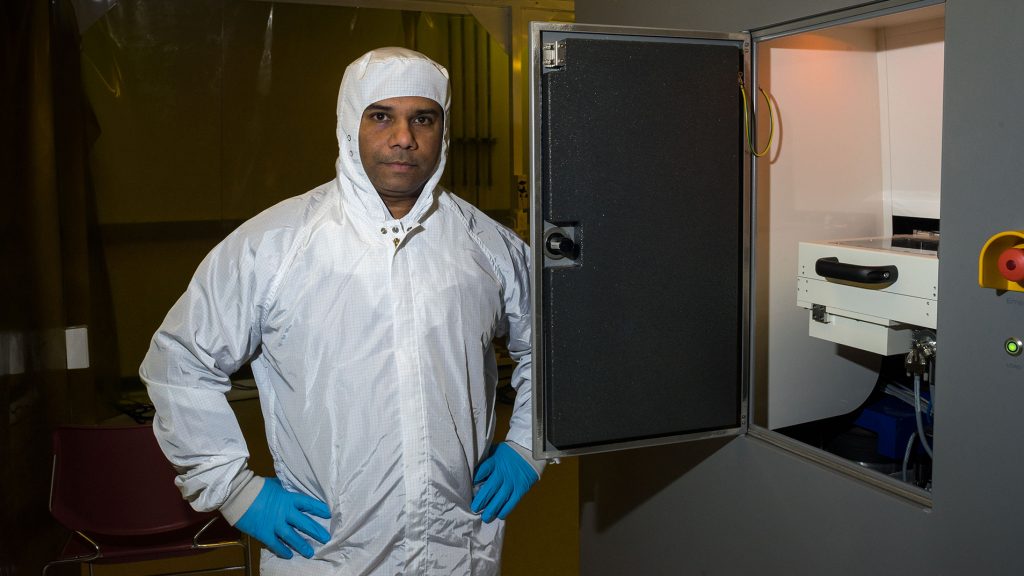In the world of augmented reality, instructors are taking the laboratory experience to an online platform using cutting-edge technology.
The University of Iowa nanotechnology & nanofabrication course teaches students how to fabricate structures on a nanoscale. They learn how to make structures that are 10,000 times thinner than a human hair.
“We have been teaching this course the traditional way [for several years],” said Adjunct Assistant Professor Aju Jugessur, the director of the UI Microfabrication Facility. “A year ago, I came up with the idea of offering the course to students who are not on campus, or students who are on campus but cannot take this course because of scheduling conflicts.”
First offered in the fall 2017 semester, the course is six weeks long and has seven labs that are accessed virtually. Students are offered three time slots per week for labs. The course has had enrollment of students from across the country.
“We would demonstrate things to the students, over live feed, and then we gave them control of the instruments,” said Andrew Textor, a teaching assistant for the course.
Students nationwide get access to lab experiments and exercises with high-definition cameras that they are able to control remotely. This gives them the feel of the environment in which actual experiments are done, Jugessur said.
“Students in this course can visualize all the key components of the experiments via various interactive technologies, including a Zoom video conferencing session hosted by the lab instructor that provides them with a sense of their actual presence in the lab,” said a press release from Iowa Now.
The plan is to remotely bring the types of training and labs to the students, who cannot come to the lab themselves, Jugessur said.
Students can get the knowledge, and the feel of operating equipment, using their software on their computer, Jugessur said.
“There are were some challenges in offering the course,” Jugessur said. “We are now focusing on marketing the course not just in [Iowa] but across the U.S. This is the first ever course offered for credit in this format in the U.S.”
Another challenge was the high cost of the course. Jugessur said university officials are working to bring the cost down so that more students can access the course.
Penn State has offered a similar course in which students can see the demonstration of tools remotely; however, those students do not have as much control, he said.
The tools that are used in the course are the ones used in the industry.
Another unique element of the course is its accessibility to students suffering physical disabilities. Most labs are not accessible to students who face disabilities, and this course does not require them to be present in the lab, Textor said.
This is just the seed, Jugessur said. The plan is to offer more courses online.
Regardless of location, students can access the facilities and “hands-on” experience, Textor said.



